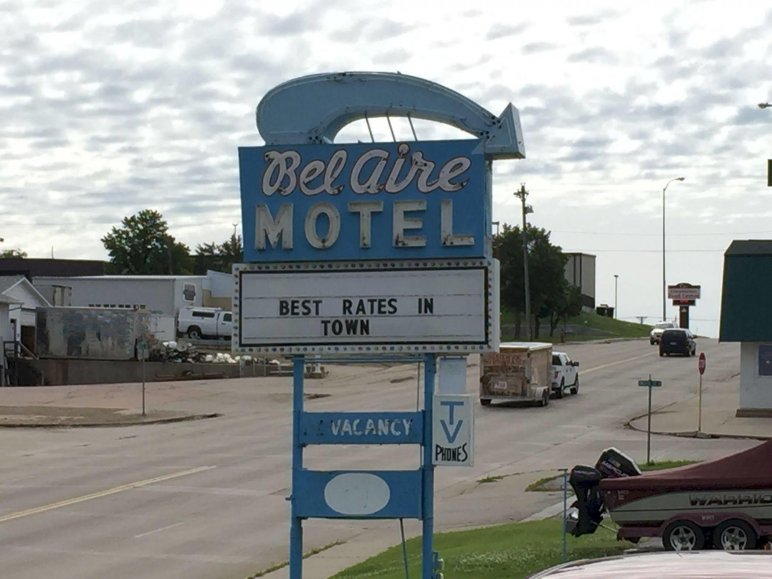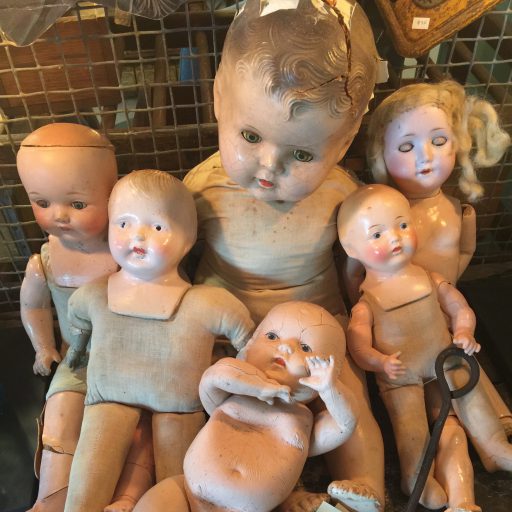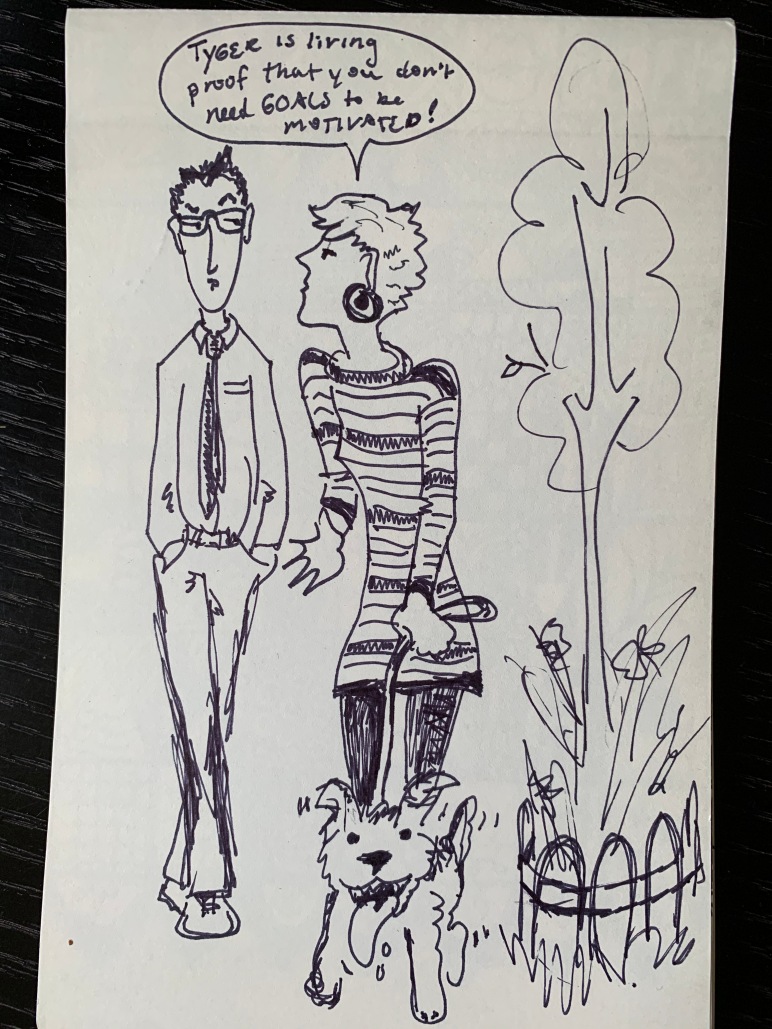By David Kaplan
The blue, rusted 1973 Plymouth Fury creeped up the steep motel driveway’s curved path. The car seemed to struggle up the hill. Perhaps it was just as exhausted and deflated as its four passengers were. It had been nearly eight hours since we left humid pre-dawn Brooklyn and arrived in sweltering Virginia Beach.
The smell of surf and cotton candy wafted through the car’s half-hearted and wheezing air conditioning system as we drove by a blur of souvenir shops. Rows of t-shirts on plastic hangers above storefronts all flowing in the breeze with endless versions of the tourist slogan, “Virginia is for lovers (heart)” calling out to passersby like flags.
My younger brother had slept most of the time. His slumber was interrupted by the need to throw up the stack of pancakes and bacon he whined my parents to order him at the rest stop at hour three in our journey. He managed to remain asleep as my parents spent the rest of the trip arguing over the directions.
“You missed the god damn turn – again,” my mother shouted, somehow never letting the Winston cigarette fall from her lips and into the crumpled up map on her lap.
“Shut the hell up, ya idiot! You’re no help! You’re supposed to tell me before — ya hear me!? Before! Beeeee-FAWWWWWRRRR — the turn comes up! Not 10 minutes after! Ya dummy!” my father thundered. As he shouted, his spit accumulated on the inside of windshield. When he stopped, it looked like there had been a mini-rainstorm just over the spot where my father’s line of sight was.
“Ah, drop dead!” my mother shouted back. “You’re being an asshole! Like always! This is the last trip, I swear to god!”
“Go jump in a lake!” my father huffed, his rage distracted by the Chevy the pulled in front of him, setting off paroxysms of honking.
Between the sound of my father gritting his teeth and the squeak of his sweaty palms strangling the steering wheel, my mother’s guttural sighs, my brother’s snores, and the AM radio playing Bread’s “I Want To Make It With You” for the 17th time that day, I had developed a splitting headache. I could have sworn that my twitchy eyelid was making a flicking sound that echoed throughout the car.
Finally, the unlit neon of the Bel Aire Two Motel beckoned us. My father swung the car hard right across one lane of traffic to enter the property.
He stopped the car in front of the entrance, which was covered in a tattered, narrow canopy that offered a sliver of shade. For a second, we sat frozen. It was as if we knew solace and rest were going to be dangled and cruelly ripped away before we could grasp it. After a beat, the family slid out of the car into the heavy, late afternoon heat.
We walked single file and pushed past two sets of glass doors. A man with bright blue eyes and leathery skin that looked like he had started to melt in the heat turned with a wide smile. He was wearing a deep blue shirt, white shorts and sweat socks pulled up to knees. He looked like a retired tennis player who had never made it out of the lower tours.
“Well, hellllllooooo, folks! What can Dan the Man do for y’all?”
My father, his crankiness ebbing to a slow, tired burn, handed over his AAA coupon that he had my mother give him before exiting the car. As the sole holder of a driver’s license, the official presenting of the “10 percent off one night’s stay at Virginia Beach’s famous Bel Aire 2 Motel” was a ceremonial gesture only he could perform. So be it. My mother popped a stick of Juicy Fruit in her mouth.
Dan the Man placed two keys on the glass countertop. One pentagonal fob was sky blue, the other was brick red. Both sported the motel’s name in white script.
My father handed over his charge card. And then he looked up. There was a line of dollar bills taped to the wall over Dan’s head. Dan was bald at the top. His face was framed on the sides and back by hooks of white hair combed in a broad wave over his ears. The brightness of his locks were contrast to his deep wrinkled tan.
“What the hell’s that?” my father said, his eyes narrowing.
Dan turned around.
“Why, it’s a row of dollars, sir!” he said. His voice was hyperbolically friendly and upbeat. However, his last word seemed to carry low grade sarcasm and a hint of menace.
“No, I mean that one,” my dad said pointing at the center, his own voice turning into a growl.
In the middle of the eight faded dollar bills excessively scotch-taped to the wall was a greenback with a cartoon image of Adolph Hitler where Washington’s portrait by Gilbert Stuart would typically be situated.
“You should take that down. Now!” my father said. “What the hell kinda place is this!”
“Awww, c’mon, it’s a joke,” Dan said, leaning over blinking his eyes in faux sweetness. He enunciated the words carefully, as if he were talking to an insipid group of children.
“That’s an insult to America! That’s illegal! You can’t do that with American money! I’m gonna report ya to the triple-A, ya wise ass!”
“Sirrrrrr, you don’t have to stay here,” Dan said with a shrug. You could tell he waited once a month to get that reaction. He response felt practiced.
“C’mon, we’re getting outta this dump. I’m telling the triple-A, ya fuckin’ son of bitch! I warned ya!” My father spat when he got outside and threw himself into the car. I turned and saw Dan, his eyes staring at us as if to say, “Got ‘em again.”
Two hours later, about 8pm, we were all sitting poolside at the East Western Motel. It faced the Bel Aire Two across the highway.
My brother was in the pool splashing. My mother was asleep on a lounge chair. I was hungry. I asked my father if he wanted something from the candy machine. He was too lost in his thoughts to hear me.
“I should have punched that asshole. Maybe I’ll go back there and do it. I should. Somebody has to. Who the hell is he to do that? We’re going home tomorrow. Screw this stupid place. You know what? I came here to relax. We’re going to enjoy ourselves. We can have anything in this shitty place.”
A plan was hatching. He was brimming. He was calm now. Hopeful even. A motel manager wouldn’t be allowed to change our big vacation plans. He wouldn’t get that satisfaction. We were here to experience a vacation in all its coastal glory. We were 350 miles from home. We could do whatever we wanted here.
“Tonight, we’re going out! We’re getting pizza!”








